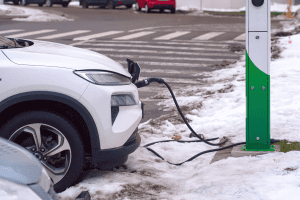Get ready for the summer months with our top tips on how to prepare your car for summer! Whether you’re off on a summer road trip, a UK staycation, or a trip through the Eurotunnel, make sure you’re ready for anything. Before you head out this summer, think about things like checking your coolant levels, packing an emergency kit and giving your car a good old clean!
1. Clean Your Car.
When preparing your car for summer, start by giving it a thorough clean! If you’re preparing for a summer road trip or need to get rid of some clutter, cleaning out your car is a great place to start. Decluttering your car can help you save fuel because it lightens the load and improves the efficiency of your car. Once you’ve got rid of any non-essential items, it’s time to give it a clean. Make sure you clean both the interior and exterior to get that new car feeling again.
2. Check Coolant Levels.
Your car’s coolant levels are responsible for ensuring the engine does not overheat, so it’s especially important in the summer. You can easily check your coolant levels at home by heading under the bonnet. You’ll need to find out which type of coolant your car needs first. You can do this by referring to the car’s owner’s manual. Make sure the engine is cool before you start, and then locate the coolant cap under the bonnet. If coolant is low, mix a solution of 50/50 water and coolant and top it up so it’s between the min and max lines.
3. Check Air-Conditioning.
Most modern cars come with air conditioning as standard, and it can be a lifesaver in those hot summer months! Granted, the UK’s summers are often varied, but air con can not only create a comfortable environment for all but also help to clear your windscreen or filter out pollutants. If you’re air-con is not working as efficiently as it has been, it may need to be regassed. You can have your air conditioning regassed for approximately £60 to £80 at a local garage.
4. Park Your Car in the Shade.
There are a whole load of reasons why you may want to park your car in the shade during hot summer days. Parking in the shade, especially for long periods of time, can help to keep your car’s interior cooler. It can also prevent heat-related damage to your car’s dashboard and stop the engine from overheating. Not only can parking in the shade prepare your car for summer weather, but it can also protect its paintwork and preserve the resale value of your car.
5. Pack the Essentials.
Once you’ve decluttered your car, you should only repack it with the essentials. All drivers should have an emergency kit in their car and should include essential items like a first aid kit, map, phone charge and torch. Specifically for the summer months, you should also carry bottled water, reusable water bottles, suncream, a windscreen sunshade, and sunglasses. All of which can keep you comfortable on the road and assist you in the even of a breakdown.
Read our guide on 10 things you need in a car emergency kit.
6. Check your Tyres.
Before you gear up for a summer road trip, you should check that some of your car’s main components are in good condition. Your tyres are an essential part of your car and can be easily checked at home. Inspect your tyres for any obvious signs of wear and tear, such as bulging, gaps, or gouges. Then, ensure your tyres are properly inflated. Under or overinflated tyres can reduce fuel efficiency, compromise the handling and affect the braking system.
Learn how to check your tyre pressure and follow the steps to correctly inflating your tyres at home.
If your car’s tread depth is too low, your car’s tyres are too damaged or they’re more than 6 years old, you should consider changing your tyres before any long drive. Find out how to change a tyre at home.
7. Top Up Windscreen Wash.
Don’t neglect your windscreen in the warmer months and prepare your car for summer by checking your windscreen and your windscreen washer levels. It’s imperative that your windscreen is clean and free from any damage. It’s actually illegal in the UK to have a dirty windscreen if it obstructs your view. Most modern cars will notify you of low windshield washer fluid through a dashboard warning light. Or, it’s easy to check for yourself and fill up your windscreen wash as required.
Whilst you’re there, make sure the windscreen has no dents or cracks in the glass, the warm weather can cause your windscreen to expand and cracks could be made worse. You should also replace your windscreen wipers if they’re leaving smearing marks on the windscreen or they don’t clear the windscreen as expected.
8. Plan your road trips.
No matter where you’re off this summer, make sure you plan and are prepared for the journey. Use a sat nav or hands-free mobile phone device to follow navigation to your destination, ensuring you check traffic and weather conditions before you head off. Also, ensure you have an appropriate level of breakdown cover for the journey you’re making. If you have a long journey ahead, you could consider sharing the driving with a (qualified) passenger or plan your breaks every 2-3 hours. If you’re carrying a lot of luggage with you, ensure all roof racks are properly secured and fit your vehicle. Luggage in the boot should not obstruct your view out of the rear window and try and create a smooth distribution of weight to help improve fuel efficiency.
Related Articles:

Does the weather affect your EV’s performance?
Living in the UK means there’s more cold weather than hot, but knowing how your electric car performs in all types of weather is important.

How to keep children safe in the car!
Whether you’re planning a summer road trip or want to know how to keep them safe when commuting, we’ve got you covered!

Safety tips for driving in the rain.
Be prepared for any conditions, and read our top safety tips for driving in wet weather!